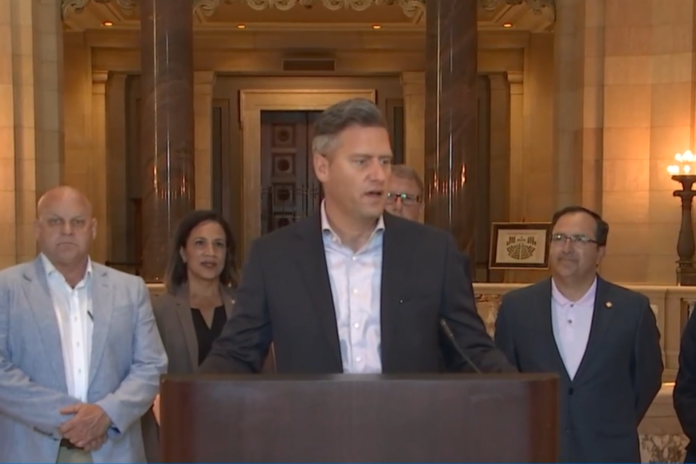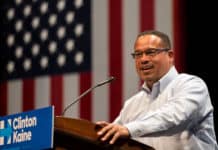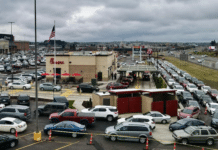
Republican lawmakers urged Gov. Tim Walz to send additional law enforcement resources to Minneapolis to “stop the bleeding,” but the governor scoffed at the “simplistic” proposal.
“Minnesota this year is looking at another summer of violent crime,” House Minority Leader Kurt Daudt, R-Crown, said at a Tuesday press conference alongside several GOP legislators, some with law enforcement backgrounds.
Facing a situation that “is getting much more dire,” Daudt and his colleagues unveiled several public safety proposals designed to provide immediate aid to a demoralized police force, including the deployment of Minnesota State Patrol troopers to “troubled neighborhoods” in the Twin Cities and surrounding metro area.
“We know Minneapolis police are critically understaffed. The chief has requested new officers but encountered resistance from the City Council,” said Daudt.
“There’s too much talking and finger-pointing and not enough action. Efforts to reimagine public safety will do nothing in the short term to address the violence that is plaguing Minneapolis, particularly in low-income and minority communities,” he added.
Rep. Brian Johnson, R-Cambridge, pointed out that the Minneapolis Police Department was already short-staffed prior to the George Floyd riots. In fact, in 2019, Minneapolis Police Chief Medaria Arradondo said the department needed to expand from 888 officers to 1,300 by 2025.
Instead, Arradondo has lost about 200 officers in a year.
“We have been operating for so long with this mindset that 600 patrol officers is adequate, and I’m here to tell you it is not,” he said in 2019. “If we continue with the same broken model, my work of transformational change of the MPD will be at great risk of failing.”
Gov. Walz is reportedly preparing a “safe-streets initiative” but has yet to release any details and has faced criticism from some community leaders for ignoring the issue.
According to Johnson, governors have called on the State Patrol to respond to violent crime before, including Gov. Arne Carlson in 1995 and Gov. Tim Pawlenty in 2003.
But Walz and the House DFL’s lead negotiator on public safety funding quickly rebuffed the idea, calling it “simplistic” and “non-helpful posturing.” Walz said he’s concerned that shifting State Patrol resources to Minneapolis could exacerbate the problem of increased traffic deaths and wants a more “comprehensive” solution.
3 kids have been shot in Minneapolis, 2 died. Homicides are up 108% (as of May 22). Shooting victims are up 153%. Carjackings are up 222%. MPD is down about 200 officers. Walz's response: That's "pretty typical" of the rest of the country and it's bad in St. Cloud, too. pic.twitter.com/u7DrZcryOb
— Alpha News (@AlphaNewsMN) June 9, 2021
Like many other policy disagreements, questions about the future of policing in Minnesota are threatening to derail budget negotiations ahead of next week’s special session, which needs to produce a budget bill to avoid a government shutdown.
House Democrats are pushing for long-term policing reforms while Republicans want a short-term fix to the immediate crisis.
“Right now, we need to stop the bleeding, we literally need to stop the bleeding,” said Rep. Paul Novotny, R-Elk River. Novotny said he’s prepared to put forward a bill with $2.5 million in funding for State Patrol overtime and round-the-clock availability of air assets.
Other proposals put forward by Republicans include partnering with federal agencies on violence prevention task forces, expanding ShotSpotter technology to deploy resources to areas most impacted by gunfire, electronic monitoring of violent offenders who are released without bail, and increased penalties for gang-related crimes and illegal possession of firearms.
Daudt closed the press conference by noting that Republicans are tracking the “troubling trend” wherein criminals “who have been given light sentences or had their sentences stayed by judges end up reoffending while they’re on release.”
“Decisions to let criminals off easy is having a direct impact on public safety,” he said.

















